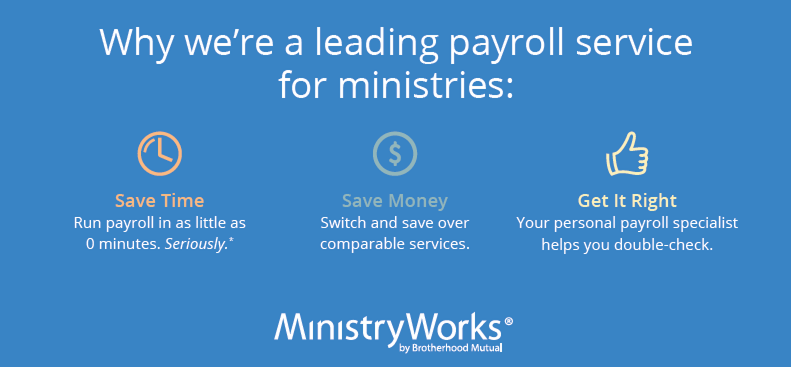A PEO for churches may seem like an easy way to manage payroll, benefits, and HR. However, co-employment models do not fit most ministry employment relationships. From conflicts with clergy housing allowances to a loss of autonomy in faith-based hiring, PEOs introduce risks most churches can’t afford.
What exactly is a PEO?
A PEO, or Professional Employer Organization, is a firm that assists other companies by managing HR tasks such as payroll, benefits, and compliance with legal requirements. When a church partners with a PEO, the PEO becomes the employer of record for tax purposes, even though the church continues to handle its daily operations.
The issue? Churches operate differently from typical businesses. They adhere to faith-based guidelines and often possess legal rights that permit them to make decisions grounded in religious beliefs. PEOs typically do not accommodate these unique aspects.
Before choosing a PEO for churches, it’s important to understand how the co-employment model can create conflicts with your ministry’s legal and theological obligations.
Issues with Benefits and Compensation
Churches provide benefits that differ from those of standard companies. Here are some frequent challenges:
- Employee Benefits: Churches frequently utilize 403(b)(9) plans tailored for church staff retirement, while PEOs typically offer 401(k) plans that lack the unique features required by pastors.
- Pastor Housing Allowance: Churches have the ability to provide pastors with a tax-exempt housing allowance. PEOs are not equipped to manage this, potentially leading to tax errors.
- Social Security: Pastors have distinct treatment regarding Social Security and may choose to opt out. PEOs often automatically withhold Social Security taxes, which can create complications.
- Unemployment & Disability Insurance: Some churches choose to opt out of state programs, but PEOs might automatically include these, disregarding the church’s decision.
Church Hiring and Religious Rights
Many churches don’t realize that hiring a PEO for churches can put their religious employment rights at risk.
- Faith-Based Employment: Religious organizations have the right to employ individuals who share their beliefs. However, entering a co-employment relationship with a secular PEO can severely undermine faith-based protections..
- Behavioral Expectations: Churches may require their employees to adhere to specific conduct aligned with their faith. PEOs could potentially disallow this, overriding the church’s established guidelines.
- Ministerial Exception: This legal principle shields churches from certain employment-related lawsuits concerning religious roles. Engaging a PEO might compromise this legal protection.
Increased Legal Liability
When a church partners with a PEO, both parties may face legal accountability:
- Liability in Lawsuits: Employees have the option to sue both the church and the PEO. PEOs might opt for quick settlements to safeguard their interests, possibly against the church’s wishes.
- Insurance Discrepancies: Churches typically possess specialized insurance for legal claims related to religious employment decisions. A PEO’s insurance may not align, potentially leaving the church vulnerable.
- Benefits Administration Liability: When a non-specialist mishandles clergy benefits, housing allowances, or retirement plans, the church may be legally responsible for the fallout—even if it wasn’t their mistake.
Loss of Control Over Staff Regulations
PEOs come with their own set of rules and employee manuals:
- Conflicts in Employee Handbooks: Churches often draft handbooks that align with their beliefs. However, a PEO might require employees to adhere to a different handbook that contains conflicting policies.
- Termination Decisions: A church may wish to terminate an employee for religious reasons. A PEO might prevent this if it contravenes their policies.
What Should Churches Do Instead?
Because of the special needs of ministry, it is smart to pick a payroll or human resource provider that focuses on faith-based organizations. For instance, MinistryWorks® comprehends the unique needs of churches and can assist with benefits, payroll, and regulations while allowing the church to maintain control.

If you’re exploring better options for managing church payroll, check out our guide to church payroll services. It covers everything from minister-specific tax issues to selecting a payroll provider that understands ministry needs.
PEOs often offer standardized HR solutions. However, churches are unique entities with distinct roles, beliefs, and legal protections. It’s crucial for churches to engage with services that comprehend their specific ministry requirements, allowing them to remain faithful to their core mission and values.






